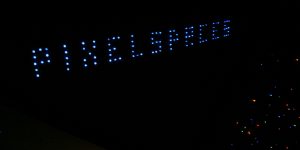Erwin Reitböck
-
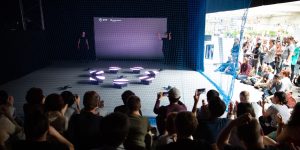
Open Futurelab 2018
Following an extended period of integrating contributions from the Ars Electronica Futurelab at various festival settings, the 2018 Open Futurelab initiative in the POSTCITY was intended to create a key interface for the lab’s creative international network.
-
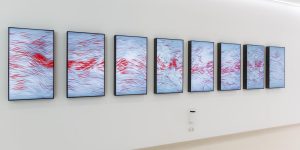
insight | out
insight | out, a work of media art by the Ars Electronica Futurelab, is a portrait of Oberbank AG Linz rendered on a fragmented frieze made up of eight video screens. The medium itself thus evokes the multiplicity of influences that flow into this portrait – the values that this long-established financial institution represents, the…
-
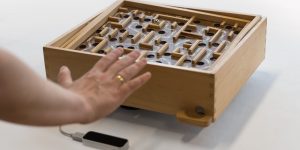
MANUACT
How can gesture research be presented so that it is comprehensible by everyone? How do you identify natural gestures for specific applications? What are the origins of such gestures, and how can they best be used in future interfaces? The Ars Electronica Futurelab has been collaborating with Chemnitz University of Technology to get to the…
-

ORI* – On the Aesthetics of Folding and Technology
This research examines how new design approaches that utilise advances in scientific origami, computation, robotics, and material experimentation, can influence the functional aesthetic of the art of oribotics. Situated in the context of contemporary electro/mechanical artworks and objects, and joining the fields of origami and robotics, oribotics is influenced by notions of folding scientifically and…
-
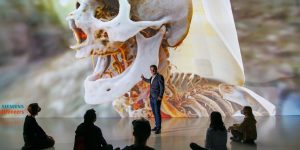
Cinematic Anatomy x Deep Space
Photorealistic Anatomy Larger Than Life in 3D
The multi-award-winning Cinematic Anatomy x Deep Space merges MRI and CTR data of real patients into photorealistic three-dimensional images of human anatomy. Organs, blood vessels, muscles, tendon, and more can be viewed larger than life as three-dimensional, razor-sharp objects from all angles.
-
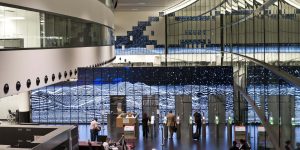
ZeitRaum
ZeitRaum (“TimeSpace”) is an interactive art installation the Ars Electronica Futurelab designed for the new terminal at Vienna International Airport. It creates real-time interpretations of arriving and departing flights.
-
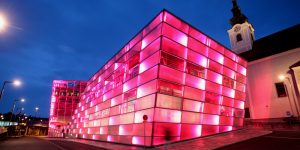
Ars Electronica Center Façade Terminal
The “Fassadenterminal” (façade terminal) was developed by the Ars Electronica Futurelab and presented to the public in 2010: It enabled artistic use of the Ars Electronica Center’s media façade, that is equipped with 38,500 LEDs.
-
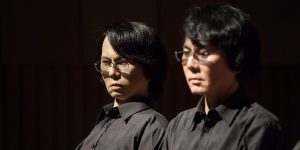
Geminoid Research Collaboration
How can a person’s unique personality and essential character traits be captured, simulated and imparted to a robot?
-
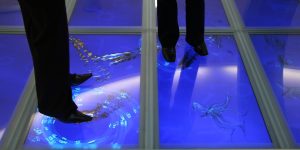
Source.Code
SAP, as an enterprise that configures and provides an organizational setting for abstract business processes, is Source.Code’s point of departure.
-

Hidden Worlds
The collaboration between SAP and Ars Electronica has been in place since 2002. This partnership is a prototype for new models of collaboration between art, business, technology and society. The collaboration ranges from media art presentations at SAP events and novel visualizations of information to joint research projects and innovative social initiatives.
-
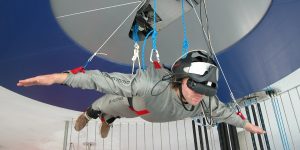
Humphrey II
In the beginning, there was Humphrey — a mechatronic device that worked in conjunction with a pair of data glasses to simulate flight in a 3-D environment. This installation in the Ars Electronica Center has been a smash hit with visitors since the museum opened, having replaced almost all the exhibits on display there at…
